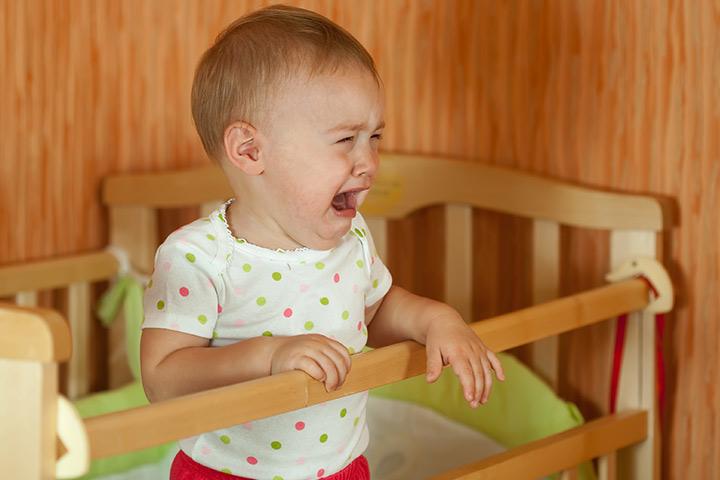I previously wrote a blog on the controversial topic of whether babies should be given a pacifier and if the pros outweigh the cons. That post got my thinking, what are some other controversial parenting topics out there and is there an obvious answer to what is better for the baby? Upon researching parenting styles I came across the Ferber Method.
Richard Ferber was a pediatrician and founder of the Center for Pediatric Sleep Disorders at the Children’s Hospital in Boston. He published the book, Solve Your Child’s Sleep Problems, which he encouraged parents to let their children “cry it out” to soothe themselves to sleep. He recommends starting around the age of 3 to 5 months, proceed with a bedtime routine, and then lay the child down to sleep. The child should not be removed from the bed or fed, even if they cry, because it will train them to go to bed on their own. The parents will check on their child and comfort them by rubbing their hand across their back periodically, but should leave the child in their crib alone. The child will learn that crying is not getting their parents’ attention anymore and eventually stop, training them to fall asleep on their own and without hassle.
Some parents, pediatricians, and scientists argue that the Ferber Method can be emotionally scaring to the child, leaving lasting effects, and is down right cruel while others believe the method is effective and trains the child to not be dependent on the parents.
 Those against Ferber’s views argue that he is only a pediatrician with no psychological training or background in the field. The child’s brain is developing during that time and learning to trust, so any traumatic experiences may hinder their development. Other critics argue that adults who suffer from insomnia were trained to sleep through the Ferber method as infants.
Those against Ferber’s views argue that he is only a pediatrician with no psychological training or background in the field. The child’s brain is developing during that time and learning to trust, so any traumatic experiences may hinder their development. Other critics argue that adults who suffer from insomnia were trained to sleep through the Ferber method as infants.
Behaviorist John Watson declared in 1928 that too much motherly love on a child can turn them into a spoiled, whiney, dependent adult…and many mothers believed him and followed his advice to later find out that little affection can actually damage the child. Ferber’s Method is very similar. While not as extreme as Watson’s declaration, it still encourages mothers to not soothe their crying children in order to make them more independent. Darcia Narvaez, associate professor at Notre Dame found that babies’ bodies release cortisol, a hormone that kills brain cells, when stressed. Studies have found that when babies have brain cells killed, there is an increased chance the child will develop ADHD, struggle with academics, and not socialize as much.
An increased level of cortisol has also been linked to the inability to manage stress in the future and the constant anxious feeling. It is within the first few years of life that infants form an attachment to their caregivers and it the bond is jeopardized, the relationship may be negatively effected for the remainder of their time together. But not only does it affect the child and the caregiver relationship, but also the child’s outlooks on relationships in general as he ages.
 Rats were tested to understood the human mind and the importance of nurturing mothers. Rats with low nurturing mothers in the first week following their birth experienced anxiety as they aged in contrast to the newborn rats with nurturing mothers that did not experience anxiety when faced with new situations. The same has been found with humans. If a child’s needs are met by the caregiver and they are not left in distress, they will be more confident in their choices and become more independent rather than the opposite.
Rats were tested to understood the human mind and the importance of nurturing mothers. Rats with low nurturing mothers in the first week following their birth experienced anxiety as they aged in contrast to the newborn rats with nurturing mothers that did not experience anxiety when faced with new situations. The same has been found with humans. If a child’s needs are met by the caregiver and they are not left in distress, they will be more confident in their choices and become more independent rather than the opposite.
The choice is up to the parents in the end. There are always exceptions to the method such as a child with medical needs, disabilities, or those who do not take to the method and continue to cry into the second week. Critics discuss gentler options to train a child to sleep on their own besides the Ferber Method. These include maintaining a bedtime routine every night and laying with your child until they fall asleep. Considering the possible negative effects of the Ferber Method and other, gentler alternatives to train a child without letting them “cry it out,” it seems as though parents should opt for something less potentially harmful, but again, parents know best for their children.
